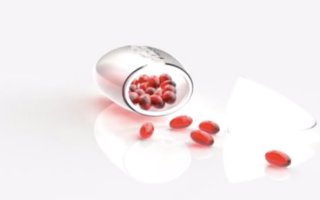In a groundbreaking development, GLP-1 medication, specifically liraglutide, has shown remarkable potential in reducing opioid cravings, according to a small yet significant study. This marks the first-ever randomized controlled trial testing anti-obesity drugs against opioid addiction, a condition claiming the lives of approximately 80,000 individuals in the U.S. annually.

The study, presented at the American Association for the Advancement of Science conference, involved 20 patients with opioid use disorder. Those administered liraglutide experienced a notable 30% reduction in opioid cravings over the three-week analysis. This effect was observed even at the lowest liraglutide dose, highlighting the medication’s efficacy.
Moreover, patients already on buprenorphine, an FDA-approved medication for opioid use disorder, reported zero cravings when also prescribed liraglutide, demonstrating a potential additive effect. The study suggests that liraglutide and buprenorphine may target different mechanisms, contributing to enhanced effectiveness.
While side effects between liraglutide and the placebo group showed no significant differences, gastrointestinal distress was twice as common in the liraglutide group, leading to a higher dropout rate. However, combining liraglutide with buprenorphine resulted in lower GI distress and dropout rates, hinting at a possible solution to alleviate these issues.
Despite the promising results, caution is urged due to the study’s limitations, including a small sample size, limited diversity, and a relatively short trial duration. An emphasis is placed on the need for further research and exploration. However, the reduction in cravings at the lowest liraglutide dose suggests potential mitigation of side effects, warranting future investigation.
This study, conducted at The Caron Treatment Center and funded by the National Institute of Drug Abuse, showcases the culmination of seven years of animal studies. These animal studies revealed that GLP-1s target relapse triggers, including environmental cues, stress, and the drug itself.
The findings open avenues for GLP-1 agonists like liraglutide to be a promising addition or alternative to existing opioid addiction treatments. As current FDA-approved drugs for opioid addiction face challenges like low uptake and significant relapse rates, GLP-1s present a potential breakthrough.
The study’s limitations, such as a small sample size and short trial duration, underscore the need for cautious interpretation of preliminary results. The high dropout rate, attributed to gastrointestinal distress, also poses a potential barrier to using GLP-1s for addiction treatment. Further research is essential to validate and expand on these findings.
In a related study, weight loss jabs, including liraglutide (Saxenda), were found to be as effective as a two-week rehab program for individuals addicted to painkillers. These jabs, which mimic a hormone to induce a feeling of fullness, demonstrated a 40% lower craving rating compared to rehab.
The potential of GLP-1 agonists extends beyond addiction treatment. Dr. Max Pemberton’s personal experience with Wegovy, a GLP-1 agonist, highlights its impact on reducing alcohol cravings. As an unexpected side effect, these medications not only curb hunger but also diminish the appeal of treats like chocolate and alcohol. Case studies suggest a potential role for GLP-1 agonists in managing alcohol intake and other compulsive behaviors.
While anecdotal, these reports hint at a broader application for GLP-1 agonists, potentially influencing addiction and dependency beyond weight management. The medications’ impact on reward pathways in the brain, reducing dopamine release, could explain their multifaceted effects.
In conclusion, GLP-1 agonists represent a promising frontier in addiction treatment, with liraglutide showing potential in reducing opioid cravings. As research progresses, these medications may offer new hope for individuals struggling with addiction, revolutionizing the landscape of treatment options.



